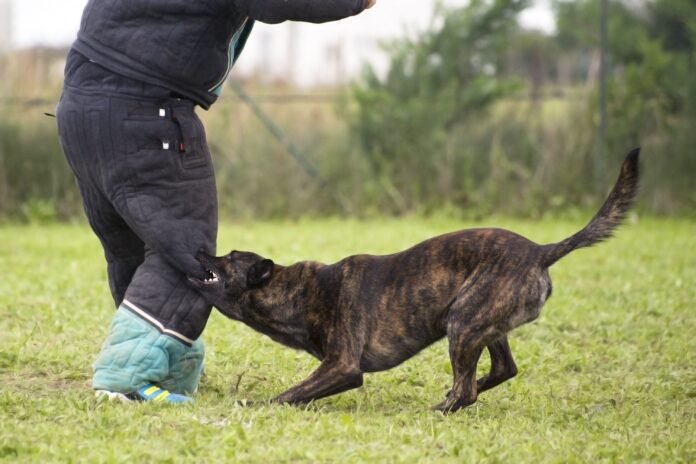Introduction
In the United Kingdom, dog bite incidents have become a growing concern, especially in urban and suburban areas. Many individuals experience such injuries each year, leading to various health complications. Often, dog bite Claims arise when the care provided after the injury falls below expected standards, causing further harm to the patient.
Medical complications can occur when injuries are not treated properly, whether through delayed care, misdiagnosis, or poor wound management. Such circumstances may involve medical negligence, making it essential for people to understand the relationship between treatment failures and prolonged health effects.
This article offers guidance on how to identify and respond to these issues. The aim is to inform readers about the connection between post-bite treatment and negligence without offering legal representation or case-specific services.
Understanding Dog Bite Claims in the UK
A dog bite claim typically refers to situations in which an individual has suffered harm due to a dog attack, with the possibility of seeking recourse based on the circumstances of the incident. In some cases, these incidents result in serious physical injuries, long-term infections, or emotional distress.
Outcomes can include lacerations, puncture wounds, nerve damage, and psychological trauma. Infections such as tetanus or sepsis are more likely to develop when care is delayed or inadequate.
Unfortunately, many affected individuals are unaware that they may be eligible to seek information and support regarding poor treatment after such injuries. For this reason, understanding the broader context of healthcare responsibilities is crucial.

When Medical Negligence Occurs After a Dog Bite
Medical negligence may occur after a dog bite if the response from healthcare providers does not meet recognised standards. Examples of such negligence include failure to clean the wound, not prescribing antibiotics, or overlooking early signs of infection.
In certain instances, a condition might worsen because diagnostic steps were missed or referrals to specialists were not provided. These types of failures may increase the likelihood of complications that could have been avoided through timely and proper care.
Within the UK’s healthcare system, clinical guidelines are in place to support patient recovery. When these guidelines are not followed, it may lead to outcomes that require further medical intervention.
Role of the NHS and Healthcare Providers
The NHS maintains a duty of care to ensure all patients are treated in accordance with medical standards. After a dog bite, emergency services and GPs are expected to assess the wound, manage infection risks, and provide appropriate aftercare.
When these responsibilities are not fulfilled, a breakdown in trust may occur. Delayed care or miscommunication regarding symptoms can contribute to long-term complications.
This guide is designed to educate patients on the processes involved in recognising and addressing concerns. While legal advice may eventually be necessary for some, the intention here is to inform rather than to direct.
What to Do After a Dog Bite Injury
If bitten by a dog, immediate action should be taken. Seeking medical care as soon as possible is critical. Wounds must be cleaned and evaluated by healthcare professionals to prevent infection or further tissue damage.
The incident should be documented clearly—photographs, location details, and a record of the animal involved can be helpful if concerns arise later. Reporting the bite to the local council or animal control office ensures that public safety is maintained.
These early steps can also form the foundation for understanding whether proper care has been received. If complications occur, having this information can help support future inquiries.
Recognising the Signs of Medical Negligence
There are several warning signs that may indicate substandard care. Patients should remain observant for the following:
- Worsening of infection due to inadequate cleaning or follow-up
- Incorrect medications or doses being provided
- Delayed identification of serious symptoms
- A lack of referral to a specialist when necessary
By noting these patterns, patients can become more informed about the quality of care received. It is advisable to record all interactions and treatment timelines, especially if recovery is prolonged.
One of the most overlooked areas in dog bite claims is the aftermath of poor medical attention. Patients may not realise that additional harm could have been prevented with better healthcare intervention.
Guidance on Seeking Further Support
If negligence is suspected, several independent organisations in the UK offer Advice and assistance:
- NHS Resolution, which explains patient concerns and treatment expectations
- Citizens Advice, offering free guidance on rights and complaints
- Healthwatch England, which promotes better patient experiences in public healthcare
By consulting these bodies, individuals can obtain clear, unbiased information. Understanding one’s options may help in determining whether further action or review is appropriate.
Time Limits and General Considerations
In the UK, a general limit of three years is applied to most medical concerns that may involve compensation Claims. This time period begins from the date of injury or the date the patient became aware of possible negligence.
It should be noted that exceptions can apply, such as in cases involving children or individuals lacking mental capacity. Acting sooner rather than later is encouraged, as medical records and evidence may be more accessible.
Delays in connecting symptoms to earlier treatment failures can make it more difficult to fully assess whether negligence occurred.
Promoting Awareness and Safety
The prevention of both dog bites and inadequate medical care starts with community awareness. Responsible dog ownership, enforcement of safety laws, and proper medical response can all reduce long-term harm.
By increasing awareness of issues related to dog bite claims, individuals are better equipped to protect their rights and well-being. Public health is supported when individuals know how to respond to injuries and how to question the quality of care they receive.
Final Thoughts – Your Right to Informed Action
Remaining informed is one of the best defences against unnecessary harm. When injuries occur and care is not delivered effectively, understanding the proper steps and expectations becomes essential.
This website has been created as a resource to share educational information. It does not offer legal services but seeks to empower readers by explaining how poor treatment can worsen outcomes following a dog bite.
Awareness of healthcare responsibilities, personal rights, and Guidance resources can assist individuals in taking appropriate steps if something goes wrong. In cases of dog bite claims, being well-informed can make a meaningful difference.
